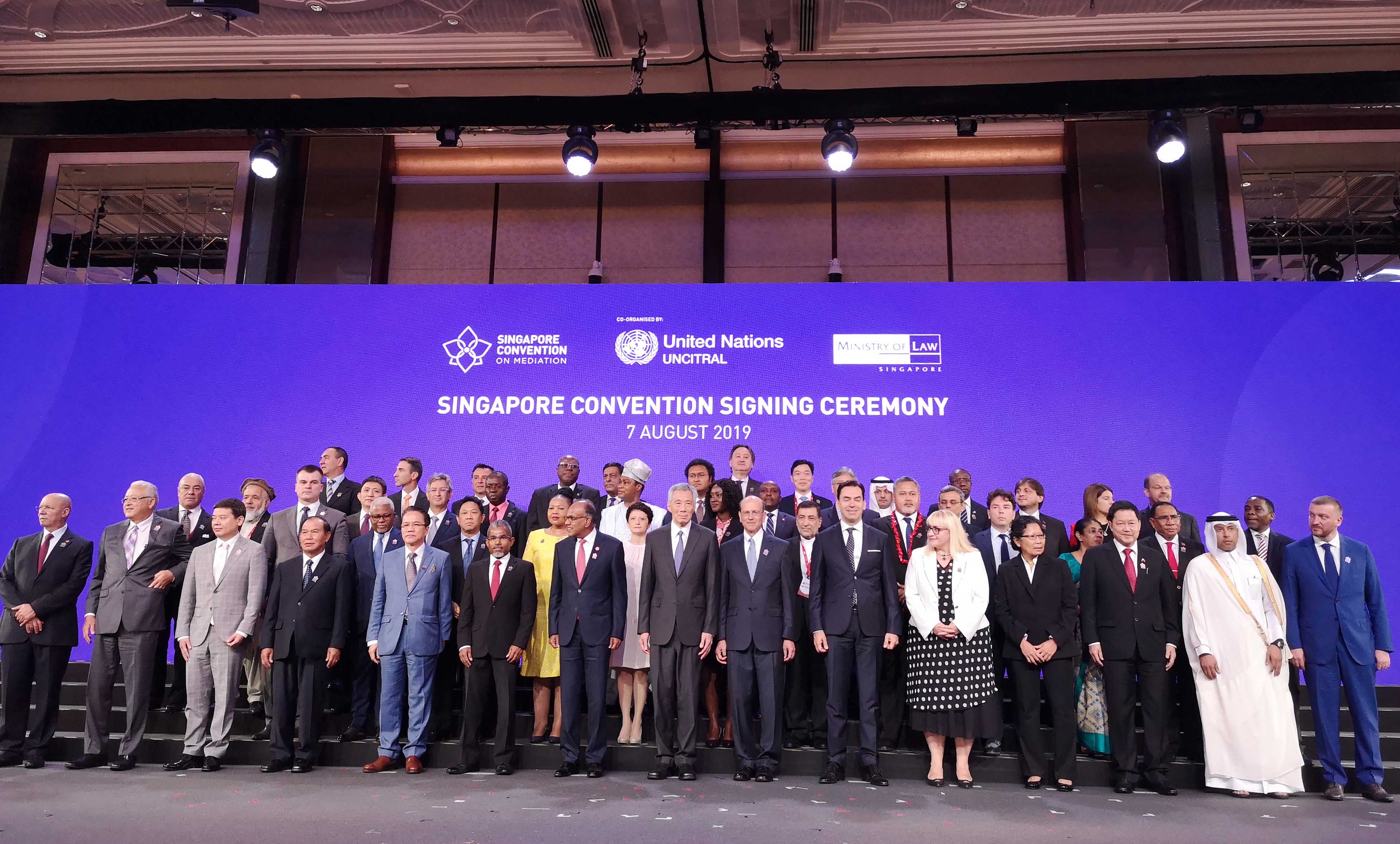Singapore Convention on Mediation Bill: A quick overview
Next week, the Singapore Parliament will be looking to pass the Bill that gives effect to the United Nations Convention on International Settlement Agreements Resulting Mediation, which is also known as the Singapore Convention on Mediation (“the Convention”).
The passage of the Singapore Convention on Mediation Bill (“Bill”) will put Singapore on track to be among the first of the 51 signatory states to deposit its instrument of ratification for the Convention, which comes into force six months after ratification by three states.

46 countries signed the Singapore Convention on Mediation on 7 August 2019. Five more signed in September.
Notably, the Bill reached Parliament a mere five months after the signing ceremony took place in Singapore on 7 Aug 2019 – this underscores Singapore’s commitment to the Convention, and the use of mediation as an important means of dispute resolution.
A close reading of the Bill indicates that much thought had gone into translating Singapore’s obligations under the Convention into domestic law. Overall, the Bill retains its fidelity to the Convention, which provides for the efficient enforcement and invocation of international and commercial mediated settlement agreements (“settlement agreements”).
Therefore, a party to a settlement agreement will be able to apply to Singapore’s High Court to:
- enforce its agreement in Singapore (“enforcement”); and
- invoke its agreement during court proceedings in Singapore, to prove that a matter relating to the court dispute had already been resolved (“invocation”).
However, as has been the case with the New York Convention for international commercial arbitration, the obligations of a Treaty can be expected to be implemented differently by different countries.
Most notably, the Convention, while providing for the enforcement or invocation of settlement agreements (Art. 3), does not go so far as to specify the mechanisms and manner of enforcement or invocation.[1] This has been left to the discretion of the signatory states.
In this regard, the Bill provides that a party can apply to record its settlement agreement as a court order.[2] If the requirements are met and no grounds for refusal exist,[3] the High Court can issue a court order based on the terms of the settlement agreement. This enables the court order to be:[4]
- enforced in Singapore just like any other judgment or order issued by the High Court; or
- invoked in court proceedings in Singapore, such that a party can rely on the court order as a “shield” (i.e. defence, set-off or otherwise) during the court proceedings.
Further, it is interesting to note that the Bill provides that a court order can be set aside, if it has been recorded “in the absence of the party against whom the order of court is sought to be enforced”.[5]
The details of the Bill are expected to be canvassed when the 2nd Reading of the Bill takes place in Parliament next week. Stay tuned for updates!
This is the first in a four-part series on the Singapore Convention Bill. For queries and information about how SIMC can support you in dispute resolution, please contact: secretariat@simc.com.sg
[1] See Article 3(1) and 3(2) of the Convention.
[2] Clause 4 of the Bill.
[3] Clause 6 and Clause 7 of the Bill, which are drawn from Articles 4 and 5 of the Convention. [State examples]
[4] Clause 5 of the Bill.
[5] Clause 8 of the Bill.

